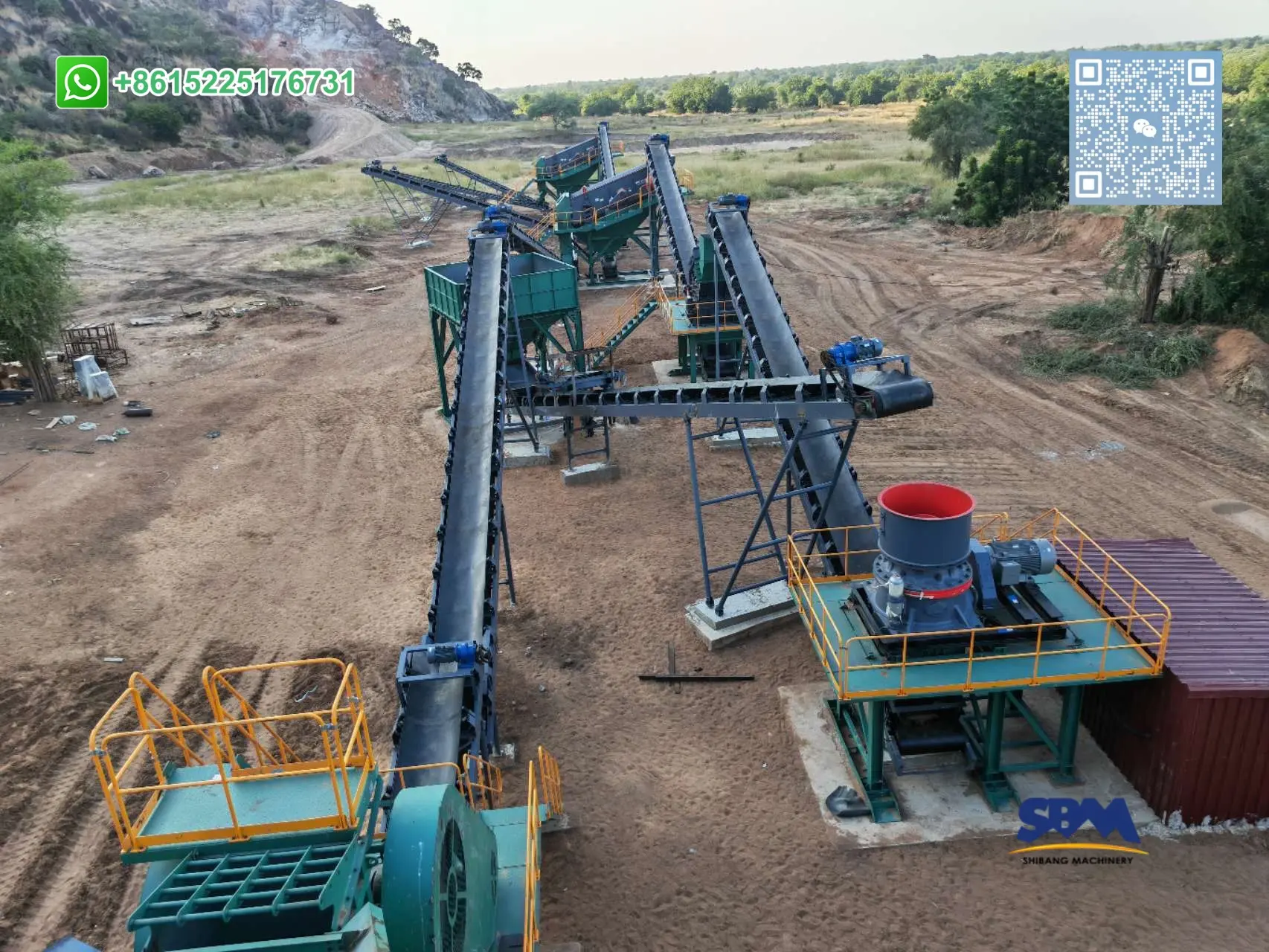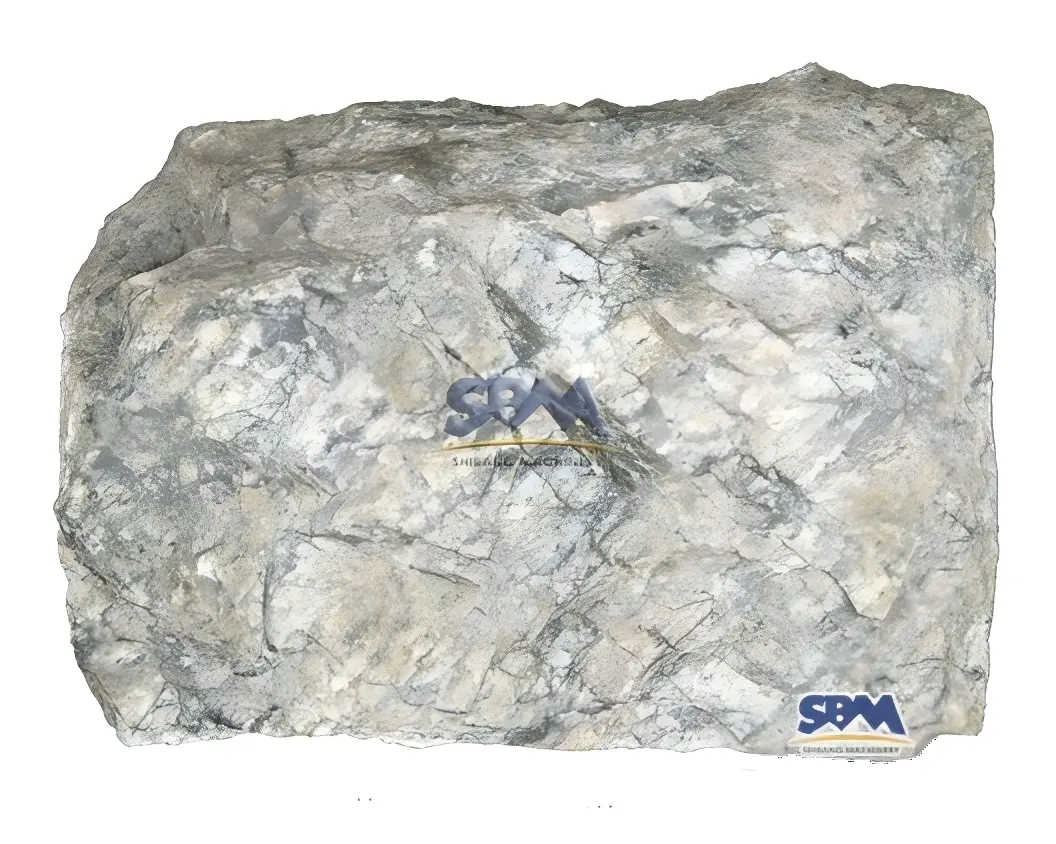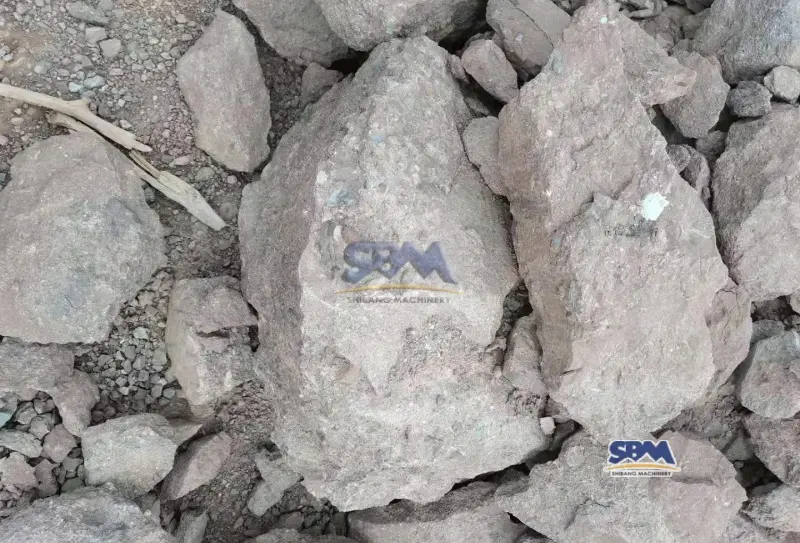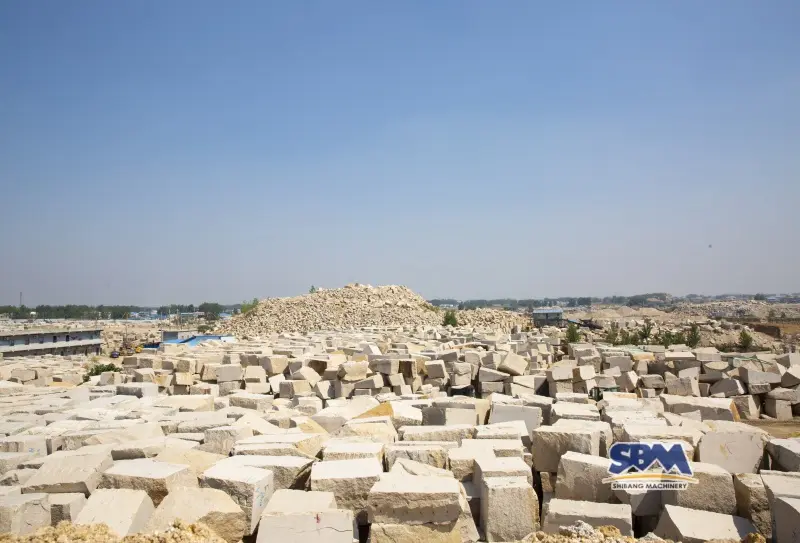E-posta: satış@mill-sbm.com
Kırıcı hangi boyutlarda ezilmiş taş üretebilir??
Kırma ekipmanı seçerken, yakıcı bir soru hakim: Kırıcı hangi boyutlarda ezilmiş taş üretebilir?? Cevap, proje verimliliğinden karlılığa kadar her şeyi şekillendiriyor. Yıllarını toplam üretimi analiz etmeye adamış biri olarak, Çıktı boyutunun gerçek dünyadaki sonuçları ne kadar derinden etkilediğini gördüm; ister otoyol döşeyin ister beton işleyin. Kırıcı yeteneklerini birlikte açığa çıkaralım.
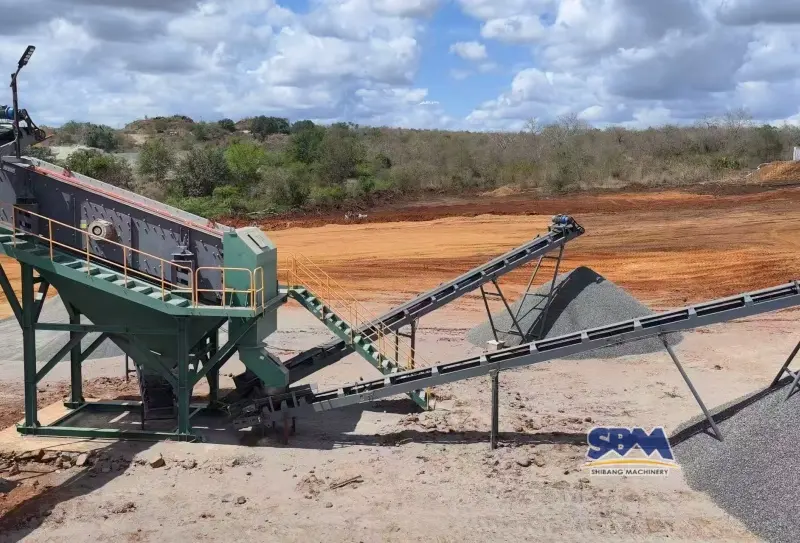
Kırıcı Tiplerini ve Çıkış Boyutu Aralıklarını Anlamak
Belirli boyut küçültme görevleri için farklı kırıcılar tasarlanmıştır. Tasarım ilkelerini bilmek, makinelerin istediğiniz taş boyutlarına göre ayarlanmasına yardımcı olur.
- Çene kırıcılar: Birincil kırma için ideal, bu makineler 1200 mm'ye kadar kayaları işliyor (1500×2000mm besleme açıklığına sahip C6X200 modeli tarafından işlenenler gibi) ve bunları 175-300mm iri agregalara indirgeyin. Sabit ve hareketli çeneleri bir baskı oluşturur “çiğneme” Sağlam başlangıç boyutu küçültme için mükemmel hareket.
- Koni kırıcılar: İkincil kırma için, konik kırıcılar (HPT100 gibi) 40–100 mm girişi 3–20 mm çıkışlara dönüştürün. Ayarlanabilir ayarlar, operatörlerin 5 mm yol tabanı veya 20 mm drenaj taşı gibi ürünler için ince ayar yapmasına olanak tanır.
- Çekiçli Kırıcılar: Altın madenciliği faaliyetlerinde, çekiçli değirmenler ≤50 mm'lik cevheri 0,1-12 mm'lik ultra ince parçacıklar halinde ezer; mineral serbestleşmesi için kritiktir. 300×500 çekiçli değirmen gibi modeller, malzemeyi boyut kontrol eleklerinden geçirmek için manganez çelik dövücüler kullanır.
- Etki kırıcılar: Dikey şaftlı darbeli kırıcılar (VSI kum makineleri), ≤5mm kum üretenler gibi, Yüksek hızlı çarpışmalar sonucu taş kırılması. Beton için bölme tanecikleri oluşturmada çok başarılılar; bazı modellerde 700 mm'lik besleme taşları kabul ediliyor.
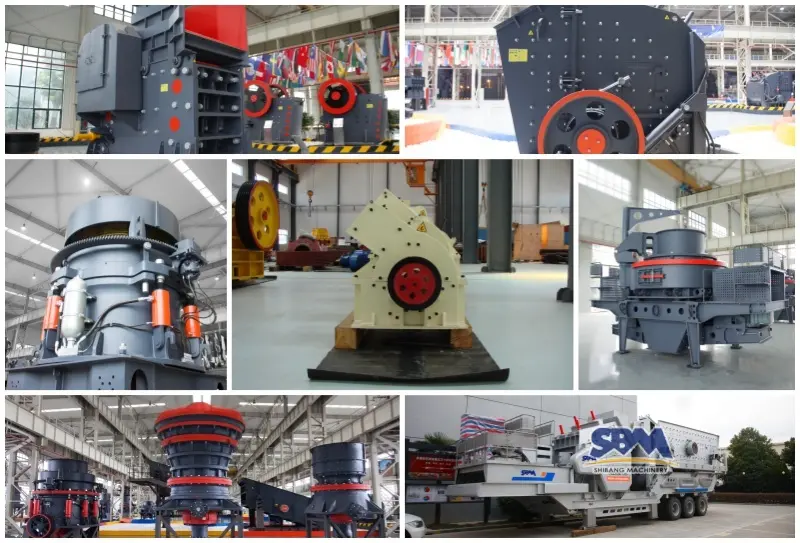
Yaygın Kırma Taş Boyutları & Kırıcı Bağlantıları
| Ürün Adı | Boyut Aralığı | Tipik Kullanım | Kırıcı tipi |
|---|---|---|---|
| #1 Taş | 2–4 inç (50–100 mm) | Erozyon kontrolü, ağır drenaj | İlköğretim/Ortaöğretim |
| #2 Taş | 1.5–3 inç (37–75 mm) | Yol üssü, drenaj | İkincil |
| #3 Taş | 0.5-2inç (12–50 mm) | Araba yolları, drenaj | İkincil |
| #4 Taş | 0.37–1 inç (9.5–25 mm) | Demiryolu balastı, septik sistemler | İkincil/üçüncül |
| #57 Taş | 0.5–0,75 inç (12–19 mm) | Beton, asfalt, drenaj | Üçüncül (Koni/VSI) |
| #67 Taş | 0.25–0,75 inç (6–19 mm) | Beton levhalar, kaldırım tabanı | Üçüncül (Koni/VSI) |
| #8 Taş | 0.125–0,5 inç (3–12 mm) | Asfalt karışımı, yürüyüş yolları | Üçüncül (HERKES) |
| #10 Taş | <0.125 inç (<3 mm) | Kum yerine, finişer eklemleri | VSI/Kuaterner Kırıcılar |
| Kırıcı Çalıştırması | 0-2inç (0–50 mm) | Yol/yol tabanı, sağlam bir şekilde sıkıştırılır | Karışık (Tüm aşamalar) |
| RCA | Değişir (geri dönüştürülmüş beton) | Yol üssü, dolgu | Mobil Darbeli/Çeneli Kırıcılar |
Kırma Taş Boyutlarını Belirleyen Temel Faktörler
Kırıcı tipinin ötesinde, Nihai ürün boyutunuzu dört değişken belirler:
- Besleme Boyutu Sınırlamaları
Her kırıcının maksimum besleme boyutları vardır (Örn., BF60.1 kırıcı kovaları ≤510 mm'lik kayaları kabul eder). Büyük boyutlu malzeme sıkışmalara ve aşınmaya neden olur, küçük boyutlu besleme verimliliği azaltırken. Birincil kırıcı çıkışını her zaman ikincil ünitenizin giriş toleransıyla eşleştirin. - Kırma Odası Geometrisi
HPT serisi gibi konik kırıcılar, taşın mantolar ve içbükeyler arasında sıkıştırıldığı çanak şeklindeki hazneleri kullanır. Daha dar hazneler daha iyi çıktı sağlar; HPT100'ün 3–20 mm ürünü ile HST100'ün 4–22 mm ürünü arasında olduğu gibi. - Ekran veya Izgara Yapılandırması
Çekiçli değirmenler ve darbeli kırıcılar değiştirilebilir eleklere/ızgaralara güvenir. 14 mm'lik bir elek, kibrit çöpü boyutunda agrega üretir, 22 mm'lik bir ekran daha büyük 5-8 cm'lik taşlar üretirken. - Ayarlanabilir Ayarlar
Modern konik kırıcılardaki hidrolik sistemler gerçek zamanlı ayarlamalara olanak sağlar.
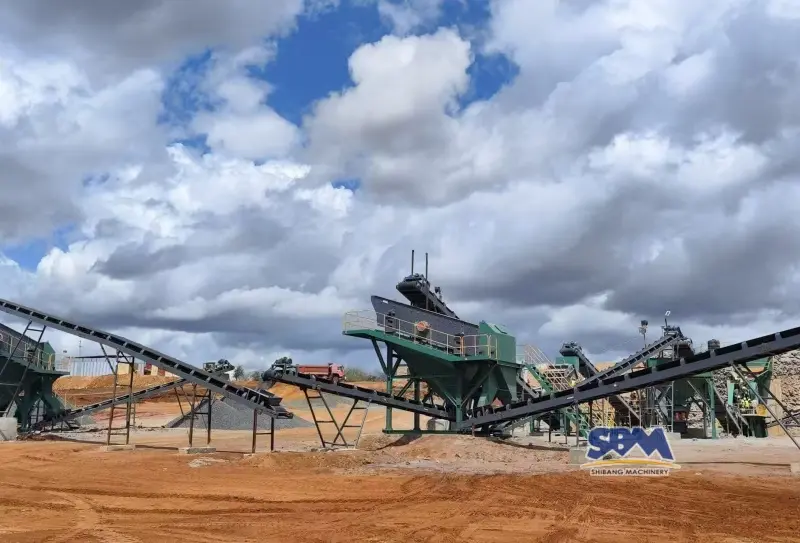
Kırıcınızın Ürün Boyutunu Kontrol Etme ve Ayarlama?
Çıktıyı optimize etmek tahmin işi değildir. Bu kanıtlanmış stratejileri kullanın:
- Konik Kırıcı Ayarları: Kapalı taraf ayarını azaltmak/artırmak için HPT serisi modellerde çanak dişli tertibatını döndürün (CSS). HPT600'de 15 mm'lik bir CSS, ~5 mm'lik toplam sağlar, 25mm ise 10–15mm taş üretir.
- Ekran Değişimleri: Çekiçli değirmenler için, 14 mm'lik ekrandan 22 mm'lik ekrana geçiş, çıktı boyutunu 3–5 cm'den 5–8 cm'ye çıkarır; 200% (3 ton/saatten 10 ton/saat'e).
- RPM Ayarı: Daha yüksek rotor hızları darbeli kırıcılar çarpışmaları yoğunlaştırmak, daha ince parçacıklar oluşturma. Peyzaj için kireç taşı işlerken daha kaba çıktı elde etmek için hızı azaltın.
- Aşınma İzleme: Manganez çeneleri aşındıkça, çıktı boyutu yukarı doğru sürükleniyor. Deşarjı haftalık olarak ölçün—a 10% ortalama büyüklükteki sinyallerin değiştirilme süresindeki artış.
Bahşiş için: Kırıcı ayarlarını her zaman önce numune malzemeyle test edin. Bir keresinde bir taş ocağının bir haftalık üretimini kaybettiğini görmüştüm. “15mm” ayarlar önceki kırıcının kalibrasyonuyla eşleşiyordu.
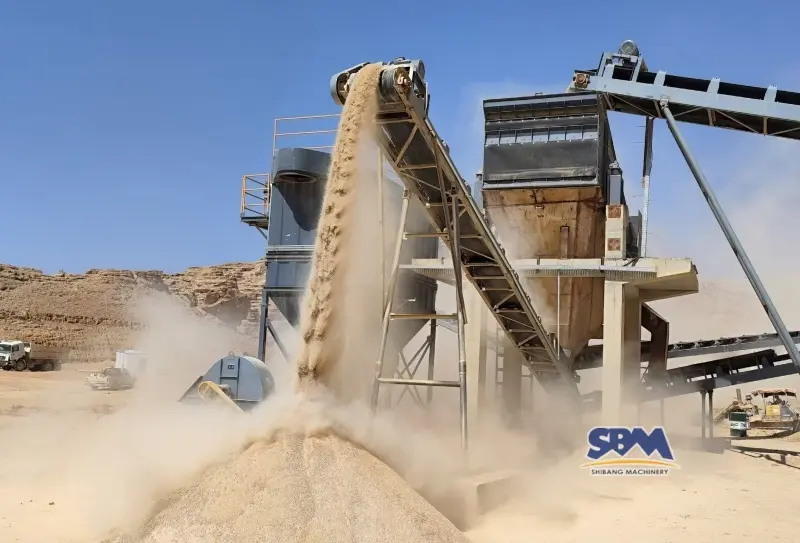
Farklı Kırma Taş Boyutları İçin Gerçek Dünya Uygulamaları
İdeal kırıcı çıktısını hedef uygulamanız belirler. Bu maçları değerlendirin:
- 3–5mm “Yapay Kum”: VSI kırıcılar yüksek dayanımlı beton karışımlarında nehir kumunun yerini alan küresel taneler oluşturur. SBM'nin 200 ton/saat VSI6X darbeli kırıcısı bunu 0-500 mm kireç taşıyla başarıyor.
- 10–20mm Drenaj Agregaları: Konik kırıcılar, birbirine kenetlenen köşeli taşlar üreterek altyapı projelerinde borunun hareketini önler.
- 50–90mm Yol Tabanı: Birincil çene çıkışları asfalt altında sıkı bir şekilde kompaktlaşır. SBM Crusher'ın K3 gibi mobil üniteleri, yıkım betonunun 60-90 mm'lik geri dönüştürülmüş tabana yerinde kırılmasına olanak tanır.
- 100–150mm Zırh Taşı: Deniz duvarları veya erozyon bariyerleri için, Açık ayarlı çeneli kırıcılar patlatılmış kayaları büyük parçalara ayırır, dayanıklı bloklar.
Kırıcınızı İstenilen Taş Boyutuna Eşleştirme
Nihayetinde, cevap vermek “Kırıcı hangi boyutlarda ezilmiş taş üretebilir??” yem materyalinizin analiz edilmesini gerektirir, hedef ürünler, ve hacim ihtiyaçları. Küçük altın operasyonları, 0,1 mm'lik parçacıklar üreten 1,5 ton/saat çekiçli değirmenlerle başarılı oluyor, taş ocakları ise 20 mm agrega için 500 ton/saat konik kırıcılar kullanıyor.
Altın kuralım? Ayarlanabilirliğe öncelik verin. Hidrolik CSS kontrollü kırıcılar (PYB konileri gibi) veya ekran değiştirme sistemleri, operasyonunuzu değişen pazar taleplerine karşı geleceğe hazır hale getirir. Nihayet, Yeni ekipman gerekmeden 5 mm kum üretiminden 30 mm balast üretimine geçiş yeteneği, karlı tesisleri durgun olanlardan ayırır.

